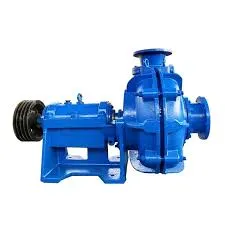Icelandic
- Afrikaans
- Albanian
- Amharic
- Arabic
- Armenian
- Azerbaijani
- Basque
- Belarusian
- Bengali
- Bosnian
- Bulgarian
- Catalan
- Cebuano
- Corsican
- Croatian
- Czech
- Danish
- Dutch
- English
- Esperanto
- Estonian
- Finnish
- French
- Frisian
- Galician
- Georgian
- German
- Greek
- Gujarati
- Haitian Creole
- hausa
- hawaiian
- Hebrew
- Hindi
- Miao
- Hungarian
- Icelandic
- igbo
- Indonesian
- irish
- Italian
- Japanese
- Javanese
- Kannada
- kazakh
- Khmer
- Rwandese
- Korean
- Kurdish
- Kyrgyz
- Lao
- Latin
- Latvian
- Lithuanian
- Luxembourgish
- Macedonian
- Malgashi
- Malay
- Malayalam
- Maltese
- Maori
- Marathi
- Mongolian
- Myanmar
- Nepali
- Norwegian
- Norwegian
- Occitan
- Pashto
- Persian
- Polish
- Portuguese
- Punjabi
- Romanian
- Russian
- Samoan
- Scottish Gaelic
- Serbian
- Sesotho
- Shona
- Sindhi
- Sinhala
- Slovak
- Slovenian
- Somali
- Spanish
- Sundanese
- Swahili
- Swedish
- Tagalog
- Tajik
- Tamil
- Tatar
- Telugu
- Thai
- Turkish
- Turkmen
- Ukrainian
- Urdu
- Uighur
- Uzbek
- Vietnamese
- Welsh
- Bantu
- Yiddish
- Yoruba
- Zulu
Telephone: +86 13120555503
Email: frank@cypump.com
des . 12, 2024 09:12 Back to list
self priming wastewater pump
Self-Priming Wastewater Pumps An Overview
Wastewater management is a critical aspect of modern infrastructure, ensuring that sewage and other waste materials are effectively removed and treated. Among the various technologies used in this field, self-priming wastewater pumps have gained significant popularity due to their operational efficiency and reliability. This article explores the functioning, advantages, and applications of self-priming wastewater pumps, elucidating why they are an essential component in sewage systems.
What is a Self-Priming Wastewater Pump?
A self-priming wastewater pump is designed to lift fluid from a lower level without the need for an external priming source. Unlike traditional pumps, which require a certain volume of liquid to be introduced into the pump before it can operate effectively, self-priming pumps can clear air from their intake line automatically. This capability allows them to function efficiently even in situations where the wastewater level may fluctuate, ensuring continued operation during periods of low flow or when air pockets form in the system.
How Does It Work?
The mechanism of self-priming pumps is grounded in centrifugal pump technology. When the pump starts, it creates a vacuum in the impeller housing, which enables it to draw liquid up from the source. The initial liquid is necessary to start the process, but once the system is primed, the pump can maintain that prime under certain conditions. The unique design of a self-priming pump includes a larger volute and an internal chamber that helps to expel air from the suction line while simultaneously drawing in liquid.
Self-priming pumps often feature a one-way valve that prevents backflow, ensuring that the pump remains primed during operation. Regular maintenance is essential to keep these valves functioning properly and to check for blockages that could hinder performance.
Advantages of Self-Priming Wastewater Pumps
1. Versatility One of the primary advantages of self-priming wastewater pumps is their versatility. They can handle a wide variety of fluids, including those with a high solids content, making them suitable for sewage, sludge, and industrial waste.
2. Ease of Installation Since they can operate without the need for additional priming systems or complex valve arrangements, self-priming pumps are easier to install. This can lead to significant cost savings in both labor and equipment during the installation phase.
self priming wastewater pump

3. Reliability The design of self-priming pumps minimizes the risk of air locking and ensures reliable operation even in challenging conditions. This reliability is particularly crucial for wastewater applications where downtime can lead to environmental and health hazards.
4. Energy Efficiency Many self-priming pumps are designed to operate with lower energy consumption. By reducing the need for external priming and utilizing energy-efficient motors, they can help in lowering operational costs over time.
Applications of Self-Priming Wastewater Pumps
Self-priming wastewater pumps are utilized across a broad spectrum of applications. They are commonly found in
- Municipal Sewage Systems These pumps are integral in lifting sewage from collection points to treatment facilities, especially in areas with fluctuating wastewater levels.
- Industrial Applications Industries often generate waste that contains solids and requires effective transportation to treatment facilities. Self-priming pumps handle these materials effectively.
- Residential Waste Management In homes where gravity flow is not feasible, self-priming pumps enable the removal of wastewater, providing a reliable solution for septic systems and drainage.
- Construction Sites During excavation and foundation work, these pumps manage groundwater, ensuring sites remain dry and safe for continued construction activities.
Conclusion
Self-priming wastewater pumps play a pivotal role in effective wastewater management systems. Their ability to operate efficiently without the need for manual priming and their adaptability to various waste types make them an invaluable solution in both municipal and industrial contexts. As cities and industries continue to evolve, the demand for reliable and efficient wastewater management solutions will undoubtedly grow, and self-priming pumps will remain at the forefront of this vital sector.
-
Heavy-Duty Mining Sludge Pumps - Wear-Resistant Slurry Handling
NewsAug.02,2025
-
Horizontal Split Case Pump with GPT-4 Turbo | High Efficiency
NewsAug.01,2025
-
ISG Series Pipeline Pump - Chi Yuan Pumps | High Efficiency, Durable Design
NewsAug.01,2025
-
Advanced Flue Gas Desulfurization Pump with GPT-4 Turbo | Durable & Efficient
NewsJul.31,2025
-
ISG Series Vertical Pipeline Pump - Chi Yuan Pumps | Advanced Hydraulic Design&Durable Construction
NewsJul.31,2025
-
ISG Series Vertical Pipeline Pump - Chi Yuan Pumps | Energy Efficient & Low Noise
NewsJul.31,2025










